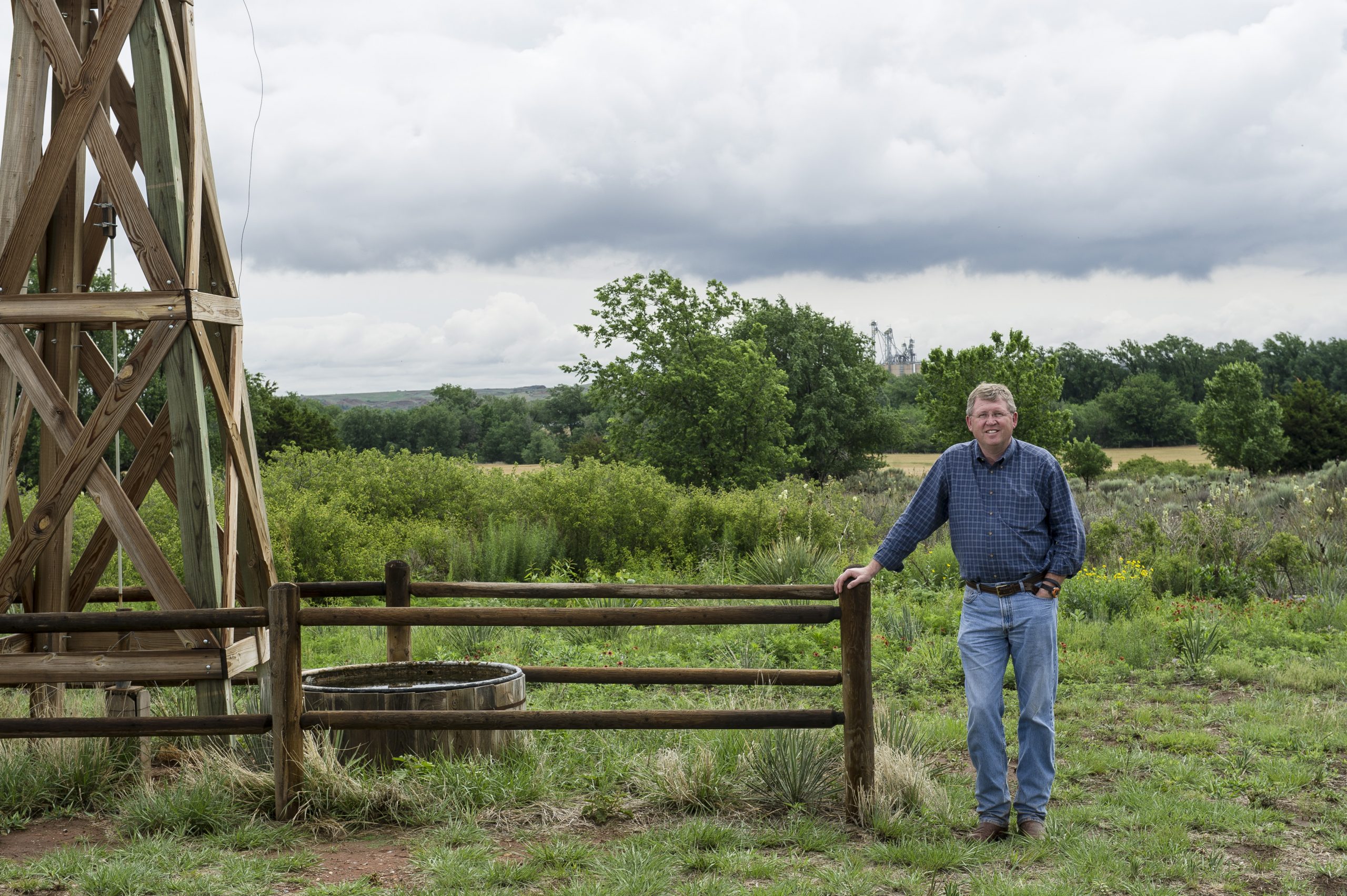
Senior Farm and Ranch Broadcaster Ron Hays got to speak with the Third District Congressman of Oklahoma Frank Lucas, who formerly served as House Ag Committee Chairman and Science Committee Chairman.
The big question in the minds of ag producers across the nation, for about two years, is when will a farm bill be finalized. During the Lame Duck Session in 2024, the decision was made to extend the existing and outdated farm bill to the end of September 2025 and add $10 billion in economic aid to help farmers with disaster relief.
The more pressing issue in government is how to fund it so that budget reconciliation can be considered and ways to reprogram enough money to extend tax relief measures begun in 2017. Then, they will begin the regular appropriations process, and Lucas is hopeful that the second reconciliation bill will include the farm bill.
“Chairman Thompson is optimistic that we can go quicker than that, but I have enough callouses and scars to know that we still have a struggle ahead of us to get it done,” Congressman Lucas admitted.
Trade wars with Canada, Mexico, China, and Europe, the war in Ukraine, resilient inflation, and other critical issues are sucking the oxygen from the room so that there just isn’t enough for the farm bill at this time.
“Hopefully, by funding the federal government, we take a big step in starting to peel this onion so we can get things back on track and back in focus,” Lucas offered.
The reference prices created in 2014 and adjusted in 2018 for the farm bill currently in use no longer reflect production costs; unforeseen weather patterns and disasters have occurred, so updating the farm bill is of critical importance but may take longer to accomplish. These are some of the reasons that the farm bill extension included the additional $10 billion, and Ag Secretary Brooke Rollins is working frantically to distribute the funds.
“We put some pretty restrictive language in there about how quickly [the money] had to come out,” Congressman Lucas explained. “She understands how important this is but remember that she doesn’t have all of her division heads and assistant secretaries in place, yet. So, they are working at the top level on a skeleton staff, and while you have the career civil servants who work very hard to follow the law and implement the farm bill, they don’t make policy decisions. I expect the money to be out shortly, and I expect it to be distributed in a dramatically simpler fashion than anything you saw come out of the Biden administration.”
Changing gears to CFIUS, short for the Committee on Foreign Investment in the United States. CFIUS is a US government interagency group that reviews foreign investments in US businesses to assess potential national security risks. Through his position on the House Financial Services Committee, Lucas gained widespread support for the Agricultural Risk Review Act (H.R. 1713) which adds the Secretary of Agriculture as a permanent member on CFIUS. It also requires CFIUS to consider referrals for reportable agricultural land transactions from USDA. Click here to see the original press release about this.
“This is an issue I have had concerns about for years – the better part of a decade – about foreign ownership of agricultural land, but not just land ownership: also, ownership of processing plants, transportation, and retail sides of the equation,” Lucas shared. “I couldn’t get anybody to pay attention here in D.C. until it turned out a few years ago that the Chinese has purchased farmland near a couple of U.S. military bases. Then, all of the sudden, people got excited!”
When people began paying attention, it became known that foreign ownership of U.S. land had grown to 40 million acres, and that number was measured in 2021. “They don’t buy red, shale hills and sand dunes,” Lucas noted. “They buy good land.”
Lucas’s bill was passed with last year’s appropriations bill gaining approval for one year. He has since reintroduced the bill to make the language permanent, and it was passed out of the Financial Services Committee unanimously a few days ago.
“We don’t do anything on Financial Services unanimously, so I’m very proud of that,” Lucas said. “So I think we are taking big steps towards making it permanent law, and our listeners know that it has always been against the law for foreign entities to own land in places like Oklahoma, but by using shell corporations – LLCs that own LLCs – they have worked their way around that, and I am trying to overcome that just as my state officials back in Oklahoma are working frantically to enforce state law, too.”
Getting the Ag Secretary a seat on CFIUS, means that any foreign entity wanting to buy a large parcel that affects the U.S. food supply must appear before the committee and present their intentions and funding sources to request permission to purchase the parcel.
“It is just like if they wanted to buy a rocket factory, or a factory that builds missiles, bullets, bombs, or secretive radar equipment or computer chips that go into defense equipment; they have to justify that their actions will have no impact on the national food security of this country, and if they can’t justify that, then CFIUS can say no and they can’t buy it,” Lucas explained.
He spoke more about the difficulty of working in the current legislative environment due to the near even split in parties in the House and Senate. He also discussed some of the reasons why the farm bill wasn’t passed during the Lame Duck Session. Click the listen bar at the top of the page to hear the entire conversation.

















